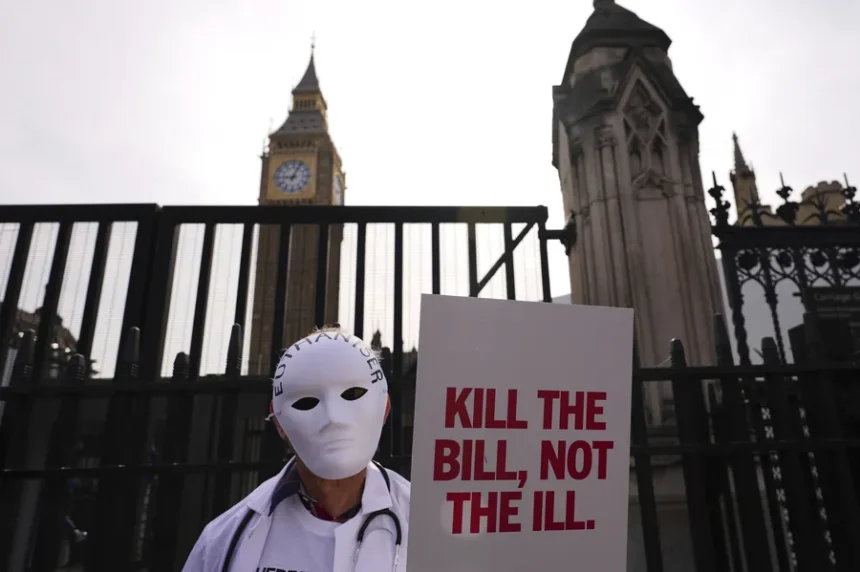In a significant vote today, the British House of Commons narrowly supported a bill that would allow terminally ill adults in England and Wales to end their lives, moving the legislation a step closer to becoming law.
The bill passed with 314 votes in favor and 291 against.
The legislation will now proceed to the House of Lords, which can amend or delay it, but cannot overturn the decision of the House of Commons. In the last vote on this bill in November, the result was 330 in favor and 275 against, and it has since undergone significant amendments.
Arguments For and Against, Public Reaction
Proponents of the bill argue that individuals with a terminal diagnosis must have the option to end their lives if they wish. Opponents, however, contend that the elderly and people with disabilities could be put at risk if they are directly or indirectly pressured to end their lives.
Hundreds of people gathered outside Parliament prior to the vote. Supporters of the bill wore attire with the slogan “Campaign for Dignity in Dying,” while opponents held banners urging MPs not to turn the National Health Service (NHS) into what they called a “National Suicide Service.”
This legislation is considered the biggest change in UK social policy since abortion was partially legalized in 1967.
Key Provisions and Implementation Timeline
The bill would grant individuals over 18 in England and Wales, who are assessed to have less than six months to live, the right to apply for assisted death. This would require the patient to be capable of self-administering the lethal medication.
Some MPs who supported the bill last autumn did so only on the condition that it be amended, while others expressed disappointment with the changes and argued that Parliament did not have sufficient time to discuss the bill’s issues. The vote was a free vote, meaning MPs voted according to their conscience rather than party lines.
The implementation of the law is projected to take four years, instead of the initially proposed two, meaning it would come into effect in 2029, coinciding with the next parliamentary elections. A request for assisted death would need to be signed by two doctors and approved by a panel consisting of a social worker, a lawyer, and a psychiatrist.
Prime Minister Keir Starmer has stated he will support the bill’s adoption, while Health Secretary Wes Streeting opposes it but has declared he will respect the outcome of the vote.
Assisted suicide is currently legal in Austria, Belgium, and parts of the United States. It differs from euthanasia, which is legal in Canada and the Netherlands, where healthcare professionals administer a lethal injection at the patient’s request under specific circumstances.







